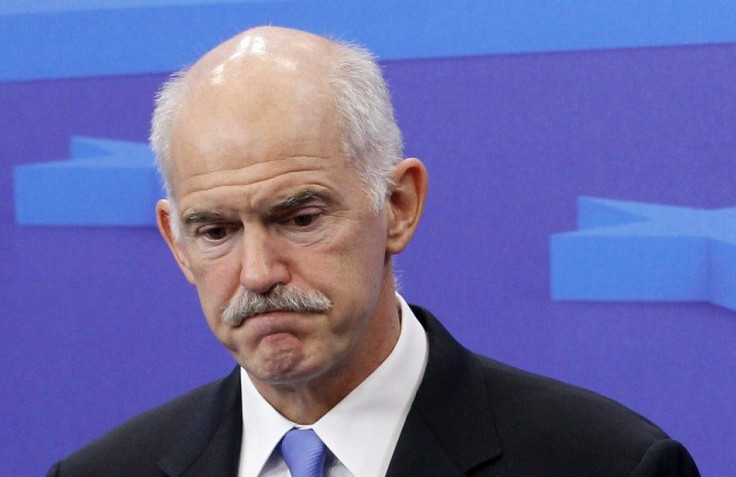Euro Crisis: Greece Must be Kicked Out if Euro to Survive
ANALYSIS

When Stratfor, a geopolitical intelligence firm, takes on the euro crisis and Greece, you know it's going to offer a fresh perspective.
Stratfor's Vice President of Analysis Peter Zeihan basically believes Greece doesn't have a future in the Eurozone.
He argues that the modern Greek economy is fundamentally uncompetitive. Therefore, it can't pay back its debt and must be kicked out of the Eurozone if the euro were to survive.
The modern Greek economy has three pillars: shipping, tourism, and essentially being a foil, according to Zeihan.
He said the Greek shipping industry is taking a hit in the age of modern transport and super container ships, which is dominated by countries like Norway, China, and Korea.
The tourism industry is still viable (although protests and riots have made it less so recently), but a modern economy of Greece's size can't be solely supported by it.
The third option, being a foil, is what Greece has gotten the most mileage out of, said Zeihan.
He said Greece was first used in the 1800s as a foil by the United Kingdom against the Turks. It was then used by the Americans during the Cold War to foil the Soviet Union.
During these periods, Greece was the recipient of massive inflows of capital from its sponsor states.
In the 21st century, however, Zeihan doesn't see the foil situation happening with any of Greece's neighbors.
Bottom-line, the various supports that have allow the Greek state to exist since the 1820's simply aren't there anymore and so the path forward goes like this: Greece is not salvageable. Greece simply can't compete unless it is being given a constant, steady supply of capital from abroad that it doesn't necessarily have to pay back, he said.
German voters, despite Chancellor Merkel's victory on Thursday, have already proven reluctant to bail out Greece indefinitely.
Germany and other core European countries do not appear to have the political will to provide Greece with a steady supply of capital Greece doesn't necessarily have to pay back in the name of Eurozone integration.
Kicking Greece out of the Eurozone, however, is going to be expensive, according to Zeihan.
He said it will take 400 billion euros to firebreak Greece off from the euro zone, 800 billion euros to prevent a banking crisis, and 800 billion euros to bail out Italy (the most vulnerable state after Greece), bringing the cost of kicking out Greece to a grand total of 2 trillion euros.
E-mail Hao Li at hao.li@ibtimes.com.
For more useful global markets information, visit ibtimes.com/sections/global-markets.
© Copyright IBTimes 2025. All rights reserved.





















